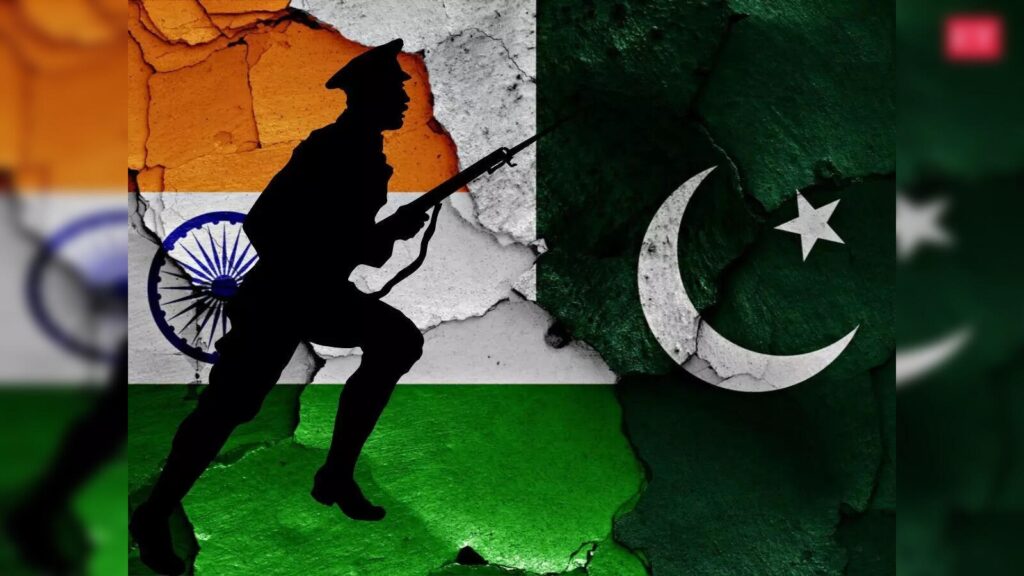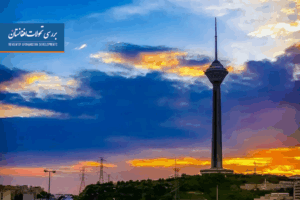Review of Afghanistan developments
The relationship between Delhi and Islamabad has escalated significantly after a terrorist incident in the tourist region of Pahalgam village, located in Indian-administered Kashmir, resulting in the deaths of 26 tourists.
Although there have been prior incidents of such attacks in the Indian-controlled Kashmir area, typically attributed to Pakistan, Delhi’s initial reactions this time are remarkably robust.
India’s reaction
Immediately following the operation, New Delhi formally accused Pakistan and promptly designated the defense and military attachés, as well as advisors from the Pakistani embassy in Delhi, as undesirable individuals, instructing them to exit the country. Additionally, Delhi resolved to decrease the diplomatic personnel at its embassy in Islamabad from 55 to 33, with this change taking effect next week.
India’s subsequent action involved not only the closure of the Attari border crossing (known as the Wagah border on the Pakistani side) but also the revocation of all visas granted to Pakistani citizens, providing them with a 48-hour notice to exit Indian territory.
The third and most important move by Delhi was to suspend the Indus Water Treaty with Pakistan. In a statement, the Indian Ministry of External Affairs said that the Indus Water Treaty with Pakistan would be suspended until Islamabad stops supporting terrorism. The treaty, known as the Indus, was signed in 1960 between Delhi (as the upstream country) and Islamabad. It concerns the Indus River and its five tributaries. The water flow of the Indus River and its tributaries is considered the lifeblood of Pakistan.
Pakistan’s reaction
Initially, Pakistani officials refuted Delhi’s assertion. Defense Minister Khawaja Asif stated that Pakistan was not involved in the Pahalgam incident in Kashmir, characterizing it as a local response and protests against the Indian government’s repression and oppression. Additionally, Foreign Minister Mohammad Ishaq Dar remarked that New Delhi had failed to present any evidence to Islamabad concerning this matter, and emphasized that Pakistan would respond to India’s provocative actions to safeguard its territory and national interests.
The National Security Council of Pakistan, the foremost military and security authority in the nation, convened a meeting led by Prime Minister Shahbaz Sharif. According to the council’s statement, Indian defense, naval, and air force advisors present in Islamabad are deemed ‘undesirable elements’ and are required to vacate Pakistani territory without delay. Visas granted to Indian nationals will be revoked, borders will be sealed, trade will be halted, and airspace will be restricted for Indian-owned or operated airlines. Furthermore, Islamabad emphasized that any Indian endeavor to obstruct the Indus River would be regarded as an ‘act of war.’
Which country stands to gain from this circumstance?
Despite India’s allegations against Pakistan regarding the involvement of groups such as Jaish-e-Mohammad and Lashkar-e-Taiba in this terrorist incident, it is important to acknowledge that both nations may have vested interests in the occurrence of this incident.
1- Pakistan
Pakistan, viewed as the losing side in the Afghanistan dynamics, contends that the Tehreek-e-Taliban Pakistan and the Balochistan Liberation Army are perpetrating assaults against it with the support of Delhi and Kabul. The number of these attacks has increased significantly, reaching 521 in the last year.
One of the deadliest of these attacks was an attack on a passenger train carrying Pakistani military personnel, in which some sources claim nearly 350 people were killed. Therefore, this action can be considered a retaliatory and counter-terrorism measure against India by Pakistan.
This assault may be interpreted as a cautionary message from Pakistan to Delhi, urging it to refrain from expanding its influence in Afghanistan. Pakistan, which is currently experiencing strained relations with the Taliban government, is observing Delhi’s growing presence in Afghanistan, a situation that is particularly intolerable for Pakistanis, as they consider Afghanistan to be within their sphere of influence. The Pakistani military and political leaders, unable to accept Delhi’s encroachment, have chosen to address their grievances in Kashmir rather than retaliating against Indian diplomatic missions in Afghanistan, and exacerbating tensions with Kabul.
2- India
Despite the violent and costly nature of this attack for India, it can be argued that the advantages India gains from it outweigh those of Pakistan.
Since the new US administration assumed office, India has struggled to restore its previous dominant role in regional affairs that it held during the Trump administration, whereas Pakistan has been notably effective in its efforts to engage American officials for collaboration in counterterrorism initiatives.
The transfer of Mohammad Sharifullah, an ISIS-K member implicated in the bombing at Kabul airport that resulted in the deaths of 16 American soldiers, by Pakistani officials to the US government was a strategic decision by Islamabad aimed at garnering the White House’s interest in counterterrorism collaboration. Following this action, Trump mentioned the potential for cooperation between the two nations in counterterrorism efforts.
Consequently, certain analysts suggest that the Pahalgam incident in Kashmir could have been a false flag operation orchestrated by India to tarnish Pakistan’s reputation on the global stage, particularly in relation to the United States. India’s subsequent actions, which include drawing parallels between the attack and the October 7 operation against the Zionist regime, canceling Narendra Modi’s visit to Saudi Arabia, and making reactive decisions concerning diplomats and the Blue Treaty, are perceived as efforts to amplify the incident’s international visibility.
An additional advantage for India in this context is the opportunity to enforce its water policy while contravening the 1960 treaty. Following the completion of the Shahpur Kandi Barrage project, India redirected water to its two states, aiming to diminish or eliminate Pakistan’s entitlements. The Indian perspective holds that the Indus Treaty grants them exclusive rights to the waters of certain rivers. By delaying the implementation of this treaty, Delhi is positioned to breach this agreement and impose its water policies on the rivers that are shared with Pakistan.

Impact of the Pahalgam Kashmir attack on Afghanistan
The terrorist attack in Pahalgam, located in Indian Kashmir, transpired during a period when Pakistan was making constructive efforts to alleviate tensions with Kabul, coinciding with a potential thaw in relations between the two nations, highlighted by the visit of Pakistani Foreign Minister Mohammad Ishaq Dar and the forthcoming trip of Taliban Foreign Minister Amir Khan Muttaqi to Islamabad.
In recent decades, Kabul’s attempts to foster equitable relations with both Delhi and Islamabad have consistently failed. Each time Kabul has sought to adjust its foreign policy in this manner, either Delhi or Islamabad has intervened with detrimental actions. Consequently, Kabul has had to bear the consequences, with the most significant toll being endured by the Afghan governments during the republican period, ultimately resulting in the disintegration of the Afghan system.
The recent assault in Pahalgam, located in Indian-administered Kashmir, suggests that the Taliban administration’s attempts to foster equitable relations with both India and Pakistan may once again be hindered. It is conceivable that the intensity of this violent Indo-Pakistani conflict could also spill over into Afghanistan under Taliban governance, leading to a resurgence of instability and insecurity with new methods.
The Pahalgam Kashmir attack will have further detrimental effects on Afghanistan, particularly concerning the uncertain future of regional projects. The success of significant projects like the TAPI gas pipeline, the Trans-Afghan Railway, and the CASA 1000 power transmission line hinges on a stable regional atmosphere. The growing insecurity in the area, particularly along the routes of these projects, is compelling investors to withdraw, a trend observed over the last two decades. While Afghanistan is relatively stable at present, the provinces of Balochistan and Khyber Pakhtunkhwa, which lie along these routes, are regarded as security hotspots. Moreover, if the conflict between Delhi and Islamabad extends into Afghanistan, this chance will be even less likely.
The third and most concerning adverse effect is that should tensions escalate between the two nations in South Asia, particularly if the Taliban government aligns itself with one of these nations, there exists a risk that one of these South Asian powers may pursue a strategy aimed at undermining or toppling the Afghan government. The conditions for such a strategy are present within Afghanistan: a fragile economy, widespread public discontent regarding certain policies of the Taliban government, the presence of armed opposition factions, and the ongoing threat posed by ISIS Khorasan.
The fourth adverse effect on the Afghan economy is the cessation of Afghan goods exports to India, a key market for Afghanistan, through Pakistan. This route will also hinder the export of Indian goods to Afghanistan.
Conclusion
The terrorist incident in Pahalgam, Kashmir, marks a resurgence of rivalry between the two nuclear nations of South Asia, signaling a new phase of heightened tensions. Recognizing that Afghanistan serves as a competitive ground for both countries, the potential repercussions of expanding this competition within Afghan borders in terms of security and economic stability are foreseeable. Taking into account the resources present in Afghanistan and the nascent Taliban administration, the potential ramifications of this rivalry on Afghanistan and its sovereignty could be profound.

















